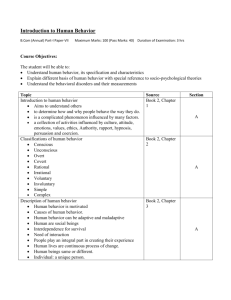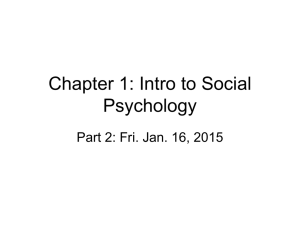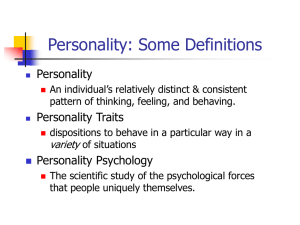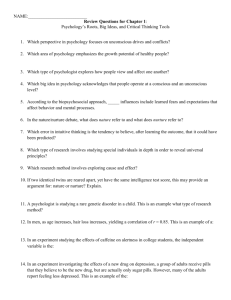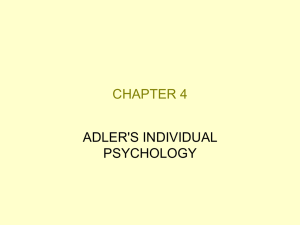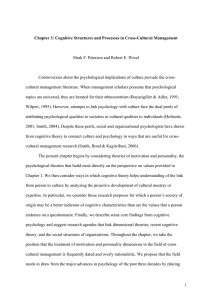Unit One Study Guide - Community Unit School District 200
advertisement
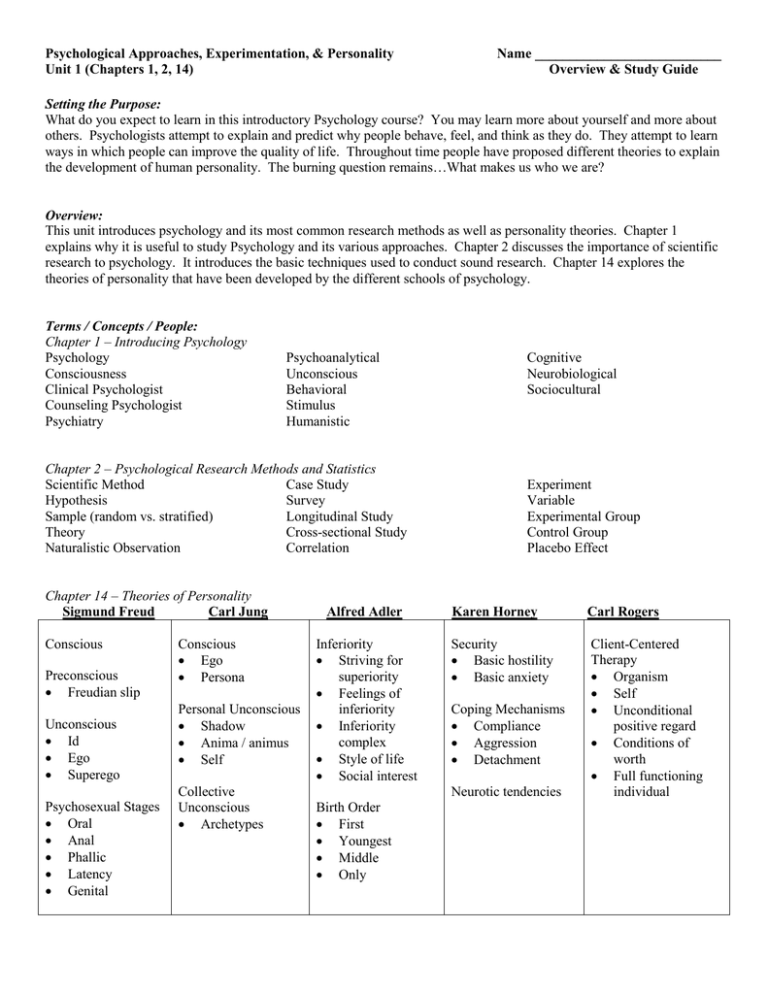
Psychological Approaches, Experimentation, & Personality Unit 1 (Chapters 1, 2, 14) Name ___________________________ Overview & Study Guide Setting the Purpose: What do you expect to learn in this introductory Psychology course? You may learn more about yourself and more about others. Psychologists attempt to explain and predict why people behave, feel, and think as they do. They attempt to learn ways in which people can improve the quality of life. Throughout time people have proposed different theories to explain the development of human personality. The burning question remains…What makes us who we are? Overview: This unit introduces psychology and its most common research methods as well as personality theories. Chapter 1 explains why it is useful to study Psychology and its various approaches. Chapter 2 discusses the importance of scientific research to psychology. It introduces the basic techniques used to conduct sound research. Chapter 14 explores the theories of personality that have been developed by the different schools of psychology. Terms / Concepts / People: Chapter 1 – Introducing Psychology Psychology Consciousness Clinical Psychologist Counseling Psychologist Psychiatry Psychoanalytical Unconscious Behavioral Stimulus Humanistic Chapter 2 – Psychological Research Methods and Statistics Scientific Method Case Study Hypothesis Survey Sample (random vs. stratified) Longitudinal Study Theory Cross-sectional Study Naturalistic Observation Correlation Chapter 14 – Theories of Personality Sigmund Freud Carl Jung Conscious Preconscious Freudian slip Unconscious Id Ego Superego Psychosexual Stages Oral Anal Phallic Latency Genital Conscious Ego Persona Personal Unconscious Shadow Anima / animus Self Collective Unconscious Archetypes Alfred Adler Inferiority Striving for superiority Feelings of inferiority Inferiority complex Style of life Social interest Cognitive Neurobiological Sociocultural Experiment Variable Experimental Group Control Group Placebo Effect Karen Horney Carl Rogers Security Basic hostility Basic anxiety Client-Centered Therapy Organism Self Unconditional positive regard Conditions of worth Full functioning individual Coping Mechanisms Compliance Aggression Detachment Neurotic tendencies Birth Order First Youngest Middle Only
